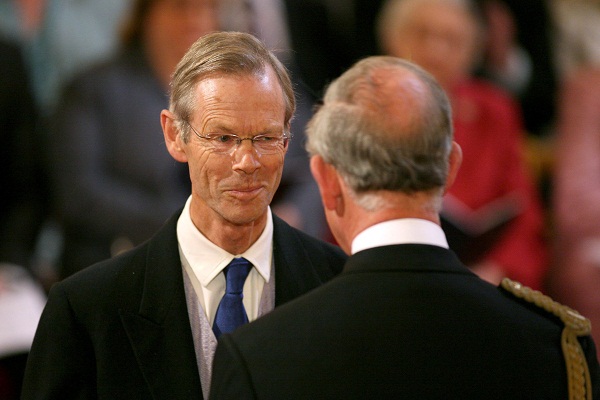The children who grew up when Christopher Martin-Jenkins began to commentate on cricket (both in print and on the air) have got old. CMJ’s 40-odd year career has been brought to a premature end by cancer; and the cricket writing world has paid tribute to its companion. The pieces by Mike Selvey, Jonathan Agnew and Michael Atherton are very touching, and very, very funny.
CMJ’s innate unpunctuality and disorganisation conspired to make episodes of glorious farce. He arrived at Lords to commentate on a Test Match that was being played at the Oval. He stopped a car journey to make an urgent phone call, only to discover that he had mistaken the TV remote control in his hotel room for his mobile phone. He sped across Barbados in a Mini Moke scattering a set of hired golf clubs in his wake.
His chaotic progress through life might surprise those who read his ordered prose in numerous books and the pages of the Times, the Telegraph and the Cricketer, and those who listened to his precise broadcasts for Test Match Special; a role in which, I think, he will be unsurpassed because accurate spoken English is a rare gift. Peter Baxter’s delightful memoir-cum-history of Test Match Special on tour, Can Anyone Hear Me? (Icon Books £16.99), records CMJ’s long service with the programme, and the reader gains an exact sense of his contribution to this National Treasure.
CMJ never played professional cricket. His personal triumph was, perhaps, to have survived the era when poetic amateurs, like John Arlott and E.W. Swanton, were supplanted as commentators by former professionals. There is speculation that CMJ will be the last of that old breed. If so it will be cricket’s loss, because some retired players lack the common touch when describing the game. CMJ plainly loved cricket as the general reader and listener did, knew it as a professional should, and conveyed everything about it in language that was both comprehensible and captivating. You believed what he wrote or said, and thus became a spectator on the drama.
One example will do. Headingley, 1981. England were destined to another heavy defeat to Australia until Ian Botham turned the game on the fourth afternoon with an innings of 149 not out, a mix of brilliance and brutality enabled by an almost cosmic reversal of fortune. As Botham smashed yet another ball into the boundary fence, CMJ said, with a faint sense of the schoolboy’s awe, ‘This time yesterday, English cricket was being buried.’ The image of Botham rising from the dead, armed with insolence and a bat, has remained with me since I first glimpsed it in the mid ‘90s: thanks to a video of that legendary game’s highlights, as I was not yet born in 1981.
One of cricket’s greatest voices will surely live long after its source is buried.






Comments